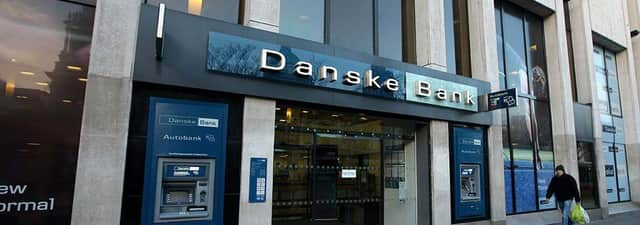First quarter profits drop at Danske Bank


Reporting a pre-tax profit of £27.3 million, down from £35m over the same period last year, the bank said the lower figure reflected the “negative impact” of the lower Bank of England base rate alongside higher costs associated with investment to improve competitiveness and efficiency.
As the recovery in areas such as construction continues and consumer confidence remains buoyant, the bank said its core underlying business continued to perform strongly.
Advertisement
Hide AdAdvertisement
Hide AdThat was evidenced by strong growth in both customer lending and deposit volumes.
Revenues for the period were £55.7m, down from £56.3 the year before and the bank reported a net credit in loan impairments of £7.1m, down from £8.6m and reflecting the ongoing recovery in property values and in the trading results of business customers.
“I am pleased to report a healthy profit before tax of £27.3m for the first quarter of 2017,” said CEO Kevin Kingston.
“The underlying performance of our business remains strong, with lending up 7% year-on-year.
Advertisement
Hide AdAdvertisement
Hide Ad“Our successful mortgage product offering helped us to drive significant new mortgage business in quarter one, resulting in a 73% uplift in mortgage lending compared to the same period last year.”
The business also saw a 26% year-on-year increase in the amount of new personal current accounts being opened, he said.
“It has also been a strong start to the year in terms of our support for the small business sector, with lending up 42% year-on-year and an average of 35 new small business relationships being established every week.
“With regards to medium to larger-sized businesses, lending is also up - 26% higher than over the same period in 2016.”
Advertisement
Hide AdAdvertisement
Hide AdAmongst larger organisations, he said the uncertainty seen in the months after the brexit vote had begun to dissipate.
“Importing companies are managing their risk in the face of rising inflation, while exporting companies are continuing to take advantage of current exchange rates,” he said.
“We helped to support multiple corporate investments in quarter one, including, significantly, the long-term refinancing of Titanic Quarter.”